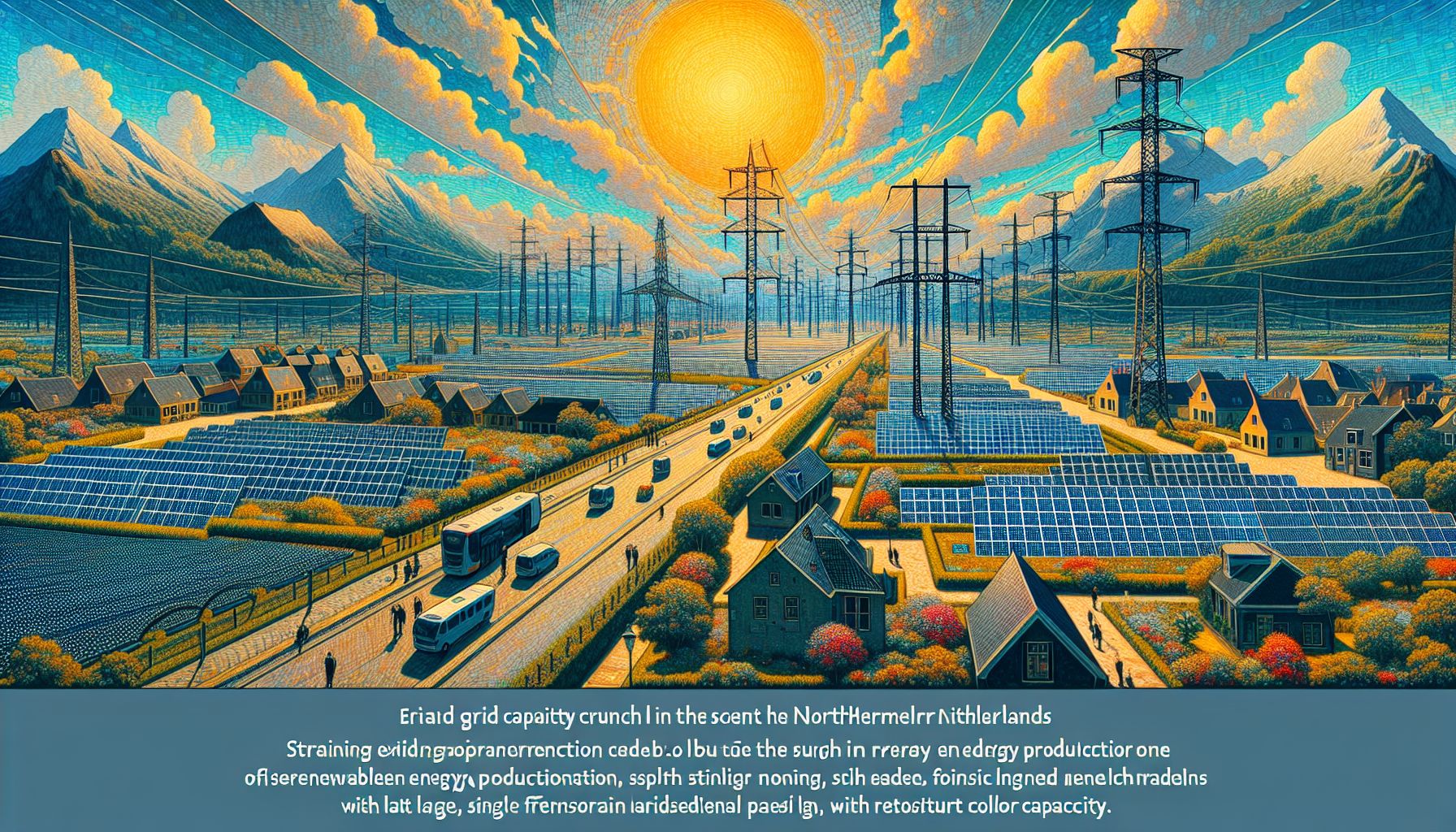TenneT Faces Grid Capacity Crunch in Northern Netherlands

Groningen, Friday, 18 October 2024.
TenneT reports no additional transport capacity for solar and wind energy producers in northern Netherlands, impacting the region’s energy transition. The surge in renewable energy production, particularly from solar parks and residential panels, is straining the existing grid infrastructure.
Current Capacity Challenges
The recent findings by TenneT, published on 17 October 2024, underscore a critical issue faced by the northern Netherlands. The regions of Groningen, Drenthe, and Overijssel have seen an explosive growth in sustainable electricity production, largely driven by solar and wind energy projects. However, this surge has outpaced the development of grid infrastructure, leading to significant congestion. The current transport capacity stands at 2,644 MW for Groningen/Drenthe and 1,634 MW for Drenthe/Overijssel, which is insufficient compared to the required capacities of 3,634 MW and 3,201 MW, respectively[1].
Efforts and Limitations in Congestion Management
TenneT’s studies reveal that while 10 MW of capacity has been identified at the Eemshaven Midden substation, it is far from meeting the overall demand. The inability to apply congestion management effectively exacerbates the issue, as local demand for electricity does not match the production capabilities. This mismatch is primarily due to the extensive installation of solar panels on residential and commercial properties, and ongoing renewable energy projects. The grid congestion is expected to persist until at least 2029-2032, pending planned network expansions, including new substations and enhanced connections[1][2].
Future Outlook and Strategic Initiatives
In response to the grid capacity crunch, TenneT is planning several strategic upgrades. These include enhancing 110 kV connections in Groningen/Drenthe and constructing new 220 kV and 380/110 kV substations across the affected regions. Despite these efforts, flexibility requirements for electricity producers will be mandatory from 1 MW capacity upwards, to manage peak demand efficiently. This policy aims to mitigate the congestion impact and facilitate better integration of renewable energy sources[2][3].
Balancing Expansion and Sustainability Goals
The challenges faced by TenneT highlight a broader issue within the energy sector: the need to balance rapid expansion of renewable energy with sustainable infrastructure development. As the northern Netherlands strives to meet decarbonization targets, urgent attention is required to adapt the grid infrastructure to accommodate diverse energy generation and consumption models. Industry stakeholders, including TenneT, are actively working towards solutions that will enable the region to achieve its energy transition goals while maintaining grid stability[3][4].

